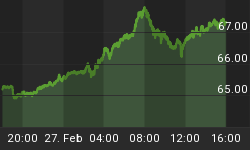Congratulations to Governor Scott Walker for sticking to his guns. The state of Wisconsin is far better off because of it. So are taxpayers. Most importantly, so are the school kids.
Please consider Union curbs rescue a Wisconsin school district
"This is a disaster," said Mark Miller, the Wisconsin Senate Democratic leader, in February after Republican Gov. Scott Walker proposed a budget bill that would curtail the collective bargaining powers of some public employees. Miller predicted catastrophe if the bill were to become law -- a charge repeated thousands of times by his fellow Democrats, union officials, and protesters in the streets.
Now the bill is law, and we have some very early evidence of how it is working. And for one beleaguered Wisconsin school district, it's a godsend, not a disaster.
The Kaukauna School District, in the Fox River Valley of Wisconsin near Appleton, has about 4,200 students and about 400 employees. It has struggled in recent times and this year faced a deficit of $400,000. But after the law went into effect, at 12:01 a.m. Wednesday, school officials put in place new policies they estimate will turn that $400,000 deficit into a $1.5 million surplus. And it's all because of the very provisions that union leaders predicted would be disastrous.
In the past, teachers and other staff at Kaukauna were required to pay 10 percent of the cost of their health insurance coverage and none of their pension costs. Now, they'll pay 12.6 percent of the cost of their coverage (still well below rates in much of the private sector) and also contribute 5.8 percent of salary to their pensions. The changes will save the school board an estimated $1.2 million this year, according to board President Todd Arnoldussen.
Of course, Wisconsin unions had offered to make benefit concessions during the budget fight. Wouldn't Kaukauna's money problems have been solved if Walker had just accepted those concessions and not demanded cutbacks in collective bargaining powers?
"The monetary part of it is not the entire issue," says Arnoldussen, a political independent who won a spot on the board in a nonpartisan election. Indeed, some of the most important improvements in Kaukauna's outlook are because of the new limits on collective bargaining.
In the past, Kaukauna's agreement with the teachers union required the school district to purchase health insurance coverage from something called WEA Trust -- a company created by the Wisconsin teachers union. "It was in the collective bargaining agreement that we could only negotiate with them," says Arnoldussen. "Well, you know what happens when you can only negotiate with one vendor." This year, WEA Trust told Kaukauna that it would face a significant increase in premiums.
Now, the collective bargaining agreement is gone, and the school district is free to shop around for coverage. And all of a sudden, WEA Trust has changed its position. "With these changes, the schools could go out for bids, and lo and behold, WEA Trust said, 'We can match the lowest bid,'" says Republican state Rep. Jim Steineke, who represents the area and supports the Walker changes. At least for the moment, Kaukauna is staying with WEA Trust, but saving substantial amounts of money.
Then there are work rules. "In the collective bargaining agreement, high school teachers only had to teach five periods a day, out of seven," says Arnoldussen. "Now, they're going to teach six." In addition, the collective bargaining agreement specified that teachers had to be in the school 37 1/2 hours a week. Now, it will be 40 hours.
The changes mean Kaukauna can reduce the size of its classes -- from 31 students to 26 students in high school and from 26 students to 23 students in elementary school. In addition, there will be more teacher time for one-on-one sessions with troubled students. Those changes would not have been possible without the much-maligned changes in collective bargaining.
A tip of the hat to the Washington Examiner for an excellent article.
- Taxpayers are better off.
- School kids are better off
- Class sizes are down
- Struggling school districts now have a budget surplus
Teachers' unions did not want this of course. Why? Because they are blatant liars that's why. There is not a damn thing unions do for kids. Every action by public unions is for public unions and no one else.
The results are in. Elimination of collective bargaining is one of the best things, if not the absolute best thing one can do for school kids. There is no other rational way of looking at this.
We need national right-to-work laws, elimination of prevailing wage laws, and the end of all public union collective bargaining as soon as possible.















